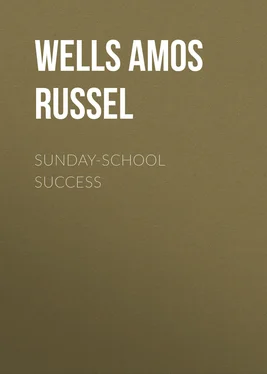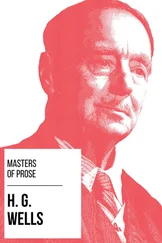Amos Wells - Sunday-School Success
Здесь есть возможность читать онлайн «Amos Wells - Sunday-School Success» — ознакомительный отрывок электронной книги совершенно бесплатно, а после прочтения отрывка купить полную версию. В некоторых случаях можно слушать аудио, скачать через торрент в формате fb2 и присутствует краткое содержание. Жанр: foreign_prose, foreign_religion, Философия, foreign_psychology, foreign_antique, на английском языке. Описание произведения, (предисловие) а так же отзывы посетителей доступны на портале библиотеки ЛибКат.
- Название:Sunday-School Success
- Автор:
- Жанр:
- Год:неизвестен
- ISBN:нет данных
- Рейтинг книги:5 / 5. Голосов: 1
-
Избранное:Добавить в избранное
- Отзывы:
-
Ваша оценка:
- 100
- 1
- 2
- 3
- 4
- 5
Sunday-School Success: краткое содержание, описание и аннотация
Предлагаем к чтению аннотацию, описание, краткое содержание или предисловие (зависит от того, что написал сам автор книги «Sunday-School Success»). Если вы не нашли необходимую информацию о книге — напишите в комментариях, мы постараемся отыскать её.
Sunday-School Success — читать онлайн ознакомительный отрывок
Ниже представлен текст книги, разбитый по страницам. Система сохранения места последней прочитанной страницы, позволяет с удобством читать онлайн бесплатно книгу «Sunday-School Success», без необходимости каждый раз заново искать на чём Вы остановились. Поставьте закладку, и сможете в любой момент перейти на страницу, на которой закончили чтение.
Интервал:
Закладка:
"But all this is a waste of time," you object. "In the lesson helps all of these points are stated and discussed, fully, methodically, concisely. Others have done this work for me, anticipating all my difficulties. Why need I repeat their labor?" Surely not merely to be original. There's too much original work crying to be done to waste a moment in duplicating unnecessarily work already done for us. But the Bible study cannot be done for you. It must end in familiarity with the Bible, in appreciation of it, in a wide-awake understanding of the problems it presents, to be obtained in no way except by original work. If difficulties are solved before we have felt them to be difficulties, if customs and phrases are explained before we have discovered the need of an explanation, and places located before we fall to groping after them, it is the old story of "light won, light lost." And so I wish to repeat that the one proper commencement of study of a Bible lesson is the Bible, and the Bible, and the Bible; once to note our own questions, once to imagine our scholars' questions, and once, in large measure, here, there, and everywhere, concordance, index, references, and atlas at our elbow, to answer, if it may be, from the Book itself all the questions it has raised.
And when this is done, even if every question has been answered, open arms to the commentaries and the lesson helps, the wisest and richest you can find, and as many as you have time for. Why? Because twenty heads are better than one; because the Hebrew and Greek and travel and debate and experience and insight and spirituality of our best thinkers will suggest new points of view, add a world of illustration, may even upset some of your conclusions. Stand sturdily, however, in the presence of these learned doctors. You will be tempted to throw away your own honest results and adopt their wise and brilliant homilies. If you do, your class will laugh at you, or yawn. You will be giving them, not your life, but your rhetoric. These helps are for inspiration, not respiration and circulation. They are for hints toward originality, not hindrances. They are useful in strengthening your own thought, vivifying your own feeling, confirming your own conclusions, opening new vistas for your own exploration, suggesting methods for your own practice.
If these two lines of preparation have been faithfully carried out, you will by this time have accumulated a mass of material which will be confusing, and the third step is to reduce it to order. Long practice has convinced me of the utility of the plan of writing out questions. Whether these questions are used in the class or not, they clarify the subject marvelously, and the mere drill of writing them adds fifty per cent. to the teaching power of the instructor. When I began trying it, I was astonished to see how many thoughts which seemed to me quite promising and bright could not be approached by the interrogative mood. I wanted to lead up to this simile, that illustration, this theory, that pretty idea. I would soon find that my questions refused to lead up to them naturally. Why? Simply because these fancies answered no query likely to rise, solved no difficulty likely to suggest itself, and were mere adventitious decorations wherewith I had been accustomed to load my Sunday-school teaching, to show off.
My attempt at formulating questions soon taught me, too, that I had been indulging in monologue. I found it unexpectedly difficult to frame a question—one, that is, which required the scholar to do some thinking to answer. I discovered that I had been in the habit of propounding "yes" and "no" queries, merely as excuses for five-minute orations.
Then, too, when I began to put down in black and white just what I expected to put into that precious half-hour, I wondered what I had been doing with it hitherto. By my previous methods two or three little notions would keep me going through the whole thirty minutes; but ideas do shrink so when you put them on paper with a question-mark at the end! It is wonderful how many questions can be asked and answered in half an hour. I gained a new conception of the value of time, and of the teaching value of study hours.
In writing out these questions, then, the first thing to be thought of is that consideration with which a good teacher will begin his lesson, but a poor teacher will close: "What is the main teaching of the lesson?"—as important, this "main teaching," as the compass to the sailor. What particular characteristic of God's noblemen is this lesson to strengthen in my scholars? Every teacher should know the power which is given by an ultimatum; by a decision, that is, as to the one thing which, no matter what else it wins or fails to win, that lesson must accomplish. Is it to make my boys and girls more truthful, more brave, more cheery, more trusting? Whatever the point be, about that shall cluster the questions, the illustrations, the arguments. Countries, customs, times, history, shall be only its framework. There must be other points, to be sure, but merely as side excursions, from which we return with greater zeal to this our main quest. Those subordinate points we next determine, and the order in which we shall treat them, and then sit down to write out our questions.
Does all this seem too mechanical, this writing out questions, and determining point by point just what results you will seek, and in what order? It is businesslike; it is mechanical. Why are we so afraid of mechanism in bringing hearts to the great Mechanic, without whom was nothing made that has been made? A machine is merely a contrivance for applying power effectively, and the only question should be, Does this machinery make my aim more direct, widen and deepen the range of my efforts? It is a grand and godlike thing to be mechanical, but it is a pitifully weak thing to stop with being mechanical. Machinery accomplishes all the work that is being done anywhere, but it is machinery informed by the Holy Spirit. Our lesson preparation will be in harmony with all of God's preparing if it is orderly, painstaking, and definite, binding together, however, all its labored details with the sweet and creative spirit of prayer. Machinery touched by prayer is always the machinery in which, as in the old Greek plays, the god descends. Nothing is mechanical, everything is poetical and spiritual, that can be prayed over.
But will not all this take time—all this ransacking of the Bible, original study, writing out of questions, and formulating plans? Of course it will. Time is what good things are made of—time and toil. It would be strange if the best of good things, the sanctification of lives, did not take time and toil. But let us remember two facts: one, that this work, being thorough work, need not be done twice. Seven years of such Bible study as I have indicated, and what a magnificently trained teacher you will be, ready, all ready, for the next International Lesson cycle, the next Sunday-school Sabbath of years! We Sunday-school teachers have enlisted for life. It is so much wiser, then, to study for life. And in the second place, familiarity with this thoroughgoing way of working makes it much easier and more rapid than at first. We no longer have to use the concordance, but memory supplies passages needed for illustration. Bible customs are soon learned. The peculiarities of Bible language are readily mastered. The poetic instinct which sees parables and applications grows with its use until they crowd upon you and must be critically culled. Nothing ends easy but that which begins hard.
After all, however, these are the lower motives. What matters it even if the preparation for this blessed work remains hard to our last Sabbath? Let it be the best we know, and on that last Sabbath, if God has given us the knowledge that even one soul has been turned to the supreme happiness by all our toil, we shall deem it rich reward.
Читать дальшеИнтервал:
Закладка:
Похожие книги на «Sunday-School Success»
Представляем Вашему вниманию похожие книги на «Sunday-School Success» списком для выбора. Мы отобрали схожую по названию и смыслу литературу в надежде предоставить читателям больше вариантов отыскать новые, интересные, ещё непрочитанные произведения.
Обсуждение, отзывы о книге «Sunday-School Success» и просто собственные мнения читателей. Оставьте ваши комментарии, напишите, что Вы думаете о произведении, его смысле или главных героях. Укажите что конкретно понравилось, а что нет, и почему Вы так считаете.












